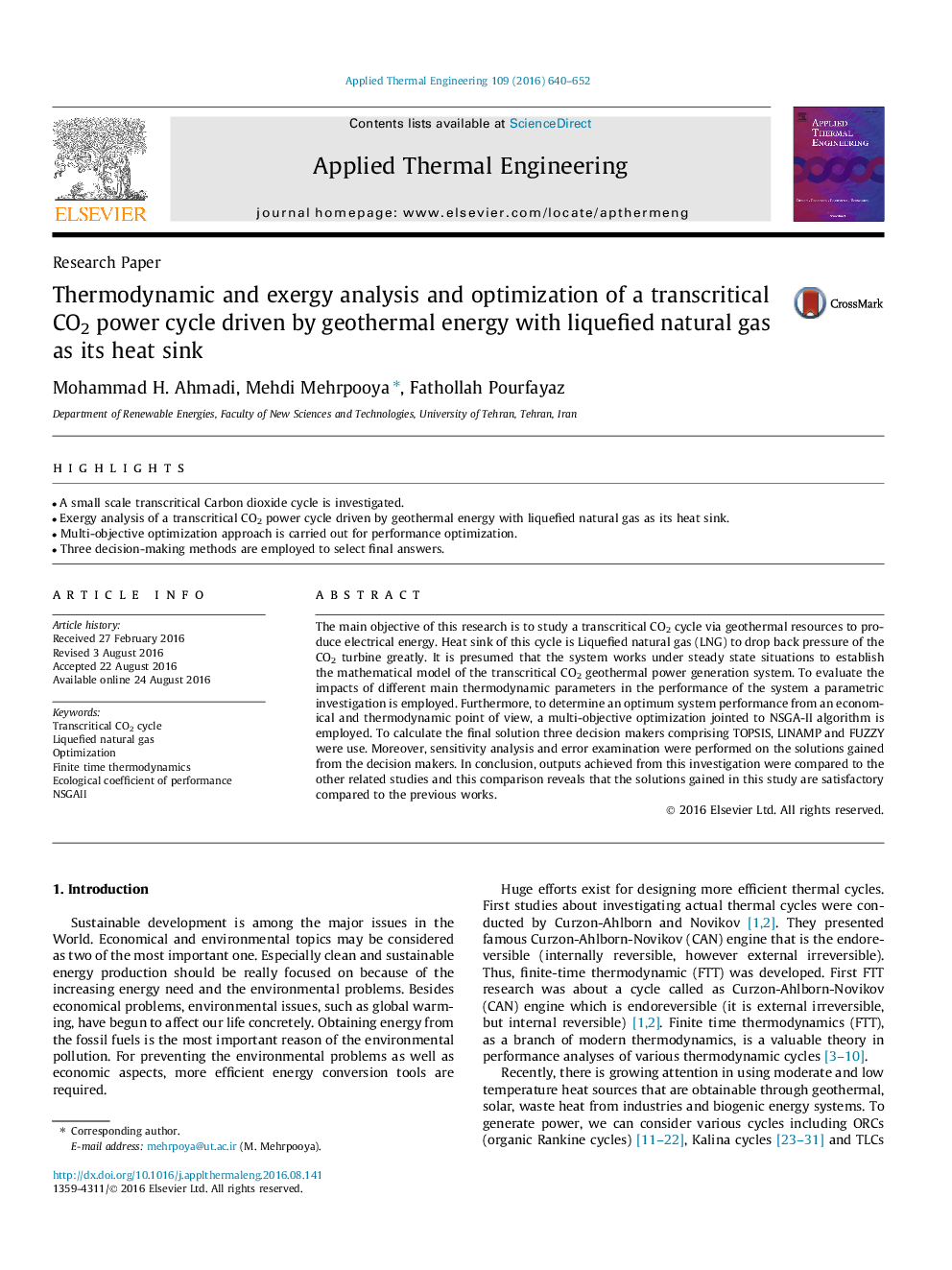| Article ID | Journal | Published Year | Pages | File Type |
|---|---|---|---|---|
| 6481190 | Applied Thermal Engineering | 2016 | 13 Pages |
â¢A small scale transcritical Carbon dioxide cycle is investigated.â¢Exergy analysis of a transcritical CO2 power cycle driven by geothermal energy with liquefied natural gas as its heat sink.â¢Multi-objective optimization approach is carried out for performance optimization.â¢Three decision-making methods are employed to select final answers.
The main objective of this research is to study a transcritical CO2 cycle via geothermal resources to produce electrical energy. Heat sink of this cycle is Liquefied natural gas (LNG) to drop back pressure of the CO2 turbine greatly. It is presumed that the system works under steady state situations to establish the mathematical model of the transcritical CO2 geothermal power generation system. To evaluate the impacts of different main thermodynamic parameters in the performance of the system a parametric investigation is employed. Furthermore, to determine an optimum system performance from an economical and thermodynamic point of view, a multi-objective optimization jointed to NSGA-II algorithm is employed. To calculate the final solution three decision makers comprising TOPSIS, LINAMP and FUZZY were use. Moreover, sensitivity analysis and error examination were performed on the solutions gained from the decision makers. In conclusion, outputs achieved from this investigation were compared to the other related studies and this comparison reveals that the solutions gained in this study are satisfactory compared to the previous works.
